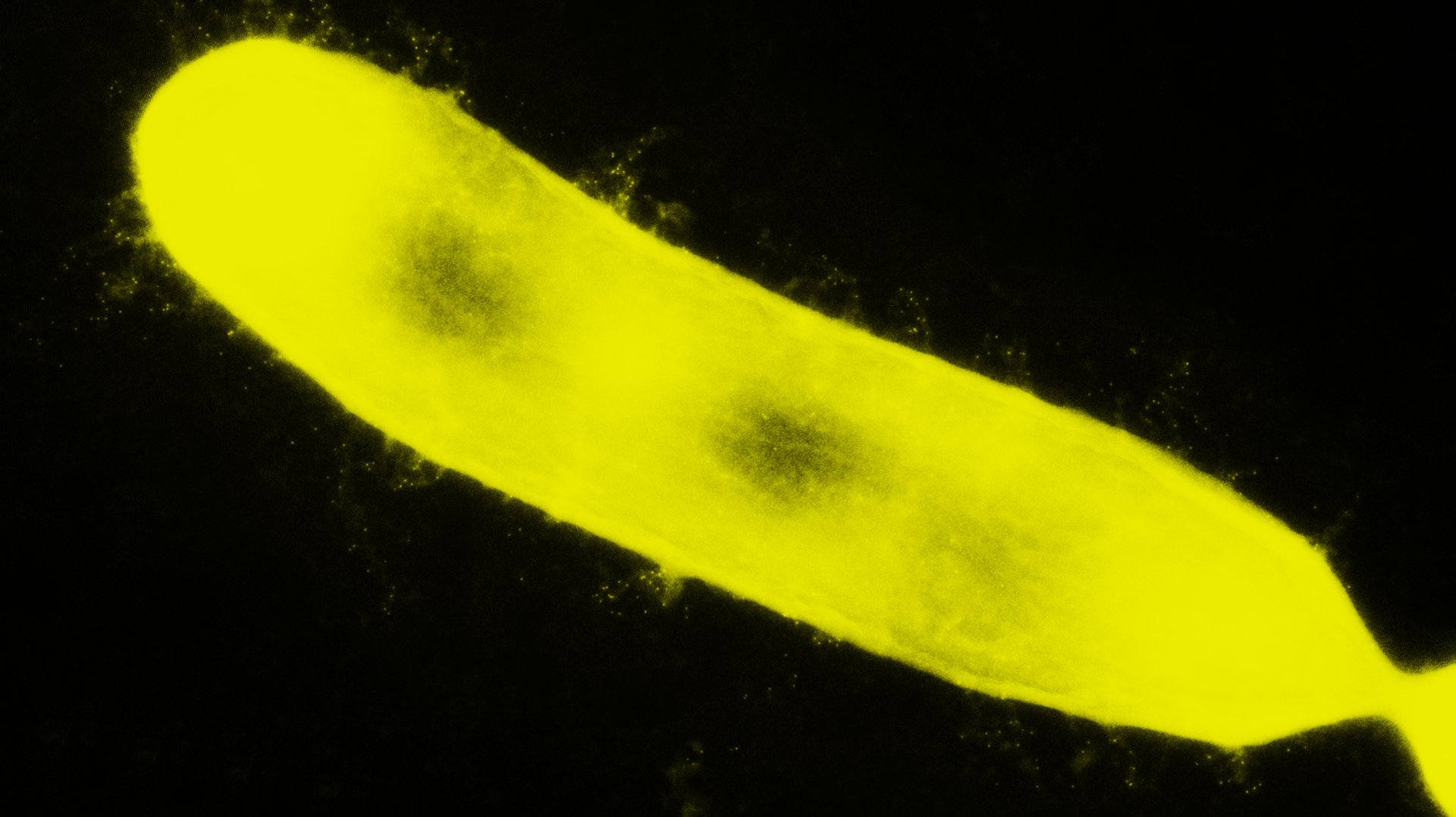Bone loss
Osteoporosis, commonly known as bone loss, is when bones decalcify and become porous. As a result, bones fracture more easily and require less force to break. This condition primarily affects women over 75. Among this group, cells that specialise in fighting infections are ‘activated’ and begin breaking down bone instead. The exact mechanism behind osteoporosis, however, remains unclear. While effective medicines are available, the condition is often diagnosed only after a patient has sustained a fracture. Preventative measures are therefore more than welcome.
Probiotics
Previous research involving mice has shown that the bacteria Lactobacillus reuteri can have anti-inflammatory effects. This led Swedish medical researchers to test these bacteria, which occur naturally in the gut, in efforts to combat bone loss. They did so using probiotics. These are living microorganisms that, in sufficient quantities, can promote good health. Most people are familiar with probiotics in the form of dairy products.
Randomised double-blind trial
A group of 70 women between 75 and 80 years of age with brittle bones took part in the study. They were divided at random into two groups. The first group, known as the experimental group, was given a powder containing Lactobacillus reuteri. The second group was given a placebo, a powder that contained no bacteria. Even the researchers did not know who got the placebo and who got the powder with the bacteria. This is called a randomised double-blind trial; it is considered the gold standard in medical research. One year later, after taking the placebo or powder containing Lactobacillus reuteri every day, the bones of the experimental group turned out to be 50 per cent less porous than those of the placebo group.
No causality
Proving that probiotics work is often difficult, as most of the research is retrospective in nature. This means that researchers look back at historical data to see if there a correlation between (in this case) probiotics and reduced bone porosity. While this type of study cannot be used to prove a cause-effect relationship (causality), it can reveal when two things go together (a correlation). The only way to demonstrate causality is to add a control group, which is exactly what the researchers did. What's more, the participants from the experimental group experienced no side effects.
Before any solid conclusions can be drawn, the probiotics containing Lactobacillus reuteri will need to be tested on more people. What this study does show, however, is that probiotics are a potential tool in the fight against osteoporosis.
Source: JIM

